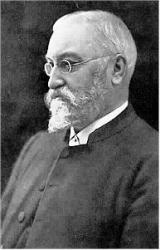1762 - 1827 Person Name: Helen M. Williams Hymnal Number: 21 Author of "While Thee I seek, protecting Power" in The Westminster Hymnal for congregational and social use and for the Sunday School Miss Helen Maria Williams was born in the north of England, in 1762. At the age of eighteen, she went to London, and soon after took position in the literary world, publishing several poems. Subsequently she resided in Paris, where she published works in prose and poetry. She died in 1827. The eminent French preacher, Athanase Coquerel was her nephew, and received from her his early training.
--Annotations of the Hymnal, Charles Hutchins, M.A., 1872.
==================
Williams, Helen Maria, daughter of Charles Williams, an officer in the Army, was born in the North of England in 1762. Through the influence of Dr. A. Kippis whose help she sought in London, her first poem, Edwin and Eltruda, a legendary tale, was published in 1782. This was followed by An Ode on the Peace, 1783, and Pern, a Poem. These were all included in her Poems, 2 vols., 1786, 2nd edition 1791. Being connected by her sister's marriage with a French Protestant family, she resided in Paris during the period of the Revolution and the reign of Terror. There she became well known as a political writer of strong republican sympa-thies, but her too independent expressions of opinion led to her temporary imprisonment by Robespierre. Her Letters from France, 1790, were published in England and America, and in a French translation, in France. She also published Letters containing a Sketch of the Politics of France from the 31st May, 1793, till the 28th of July, 1794, 2 vols., 1795, and other works of a like kind; some additional Poems, and a translation of Humboldt's Personal Narratives of his Travels, 1815. The closing years of her life were spent at Amsterdam, in the house of her nephew, Athanase Coquerel, a pastor of the Reformed Church there. Miss Williams died in 1827. From her Poems, 1786, the following hymns have come into common use:—
1, My God, all nature owns Thy sway. Nature speaks of God. In Martineau's Hymns, 1840.
2. While Thee I seek, protecting Power. Safety in God. This hymn was in Dr. Priestley's Birmingham Collection, 1790; in Kippis's Collection, 1795; the Exeter Collection, 1801; and almost every other Unitarian collection to the present time. In the New Congregational Hymn Book , 1859, it begins "While Thee I seek, Almighty Power;" and in several collections a cento beginning "Father, in all our [my] comforts here," is given as in Stowell's Psalms & Hymns, 1831 and 1877, and several others. [Rev. Valentine D. Davis, B.A.]
-- John Julian, Dictionary of Hymnology (1907)
==================
Williams, Helen Maria, was born in the North of England in 1762. She published a volume of poems when only twenty-one years old, and in 1786 her Poems appeared in two small volumes. She visited Paris in 1788, and lived there for some years with a sister who had married a French Protestant. This was during the period of the Revolution and the Reign of Terror. She was an outspoken republican in her sympathies, 448 and was imprisoned by Robespierre because of some of her utterances in advocacy of the Girondist cause, being released from prison only after his death, in 1794. Her Letters from France (1790 and 1795) were published in England, America, and France. They dealt with political, religious, and literary questions, and showed her to be a woman of more than ordinary intellectual strength. She published many volumes between 1786 and 1823, when her last volume appeared, titled Poems on Various Occasions, being a collection of all her previously published poems. She lived partly in England, but mostly in France, though the closing years of her life were spent in Holland in the home of a nephew who lived at Amsterdam and was pastor of the reformed Church there. Her death occurred at Paris December 14, 1827.
Hymn Writers of the Church Wilbur F. Tillett and Charles S. Nutter, 1915
Helen Maria Williams


